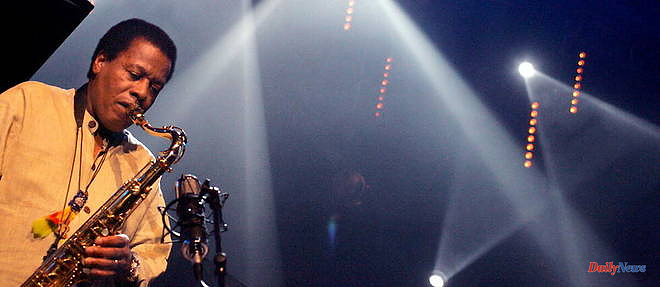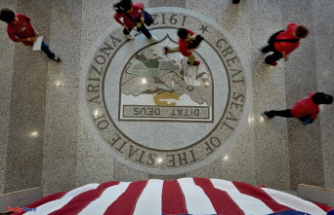The jazz world is in mourning. American saxophonist Wayne Shorter, considered one of America's greatest jazz composers, died Thursday in Los Angeles at the age of 89. He will have spent almost sixty years at the pinnacle of jazz history, from dreamy choruses to inspired musical conversations, alongside Miles Davis, Art Blakey, Joe Zawinul or Herbie Hancock.
The New York Times described in his obituary as an "innovative", "intrepid" and "enigmatic" musician who played with the greats, including Miles Davis, and excelled on both soprano and tenor saxophone, especially with his band. Weather Report.
"Even if he's not a leader, like John Coltrane or Charlie Parker, who suddenly showed the way, he brought a lot to the history of jazz," says Franck Bergerot, journalist and author of several books on Miles Davis, of which Wayne Shorter was one of the musicians from 1964 to 1970. "He is a character, a poet, someone completely apart, who has contributed to great stories since he has was Art Blakey's musical director and an important composer," the historian continues.
In 1960, he was 26 years old when he was hired by Art Blakey in his Jazz Messengers: since then, and until his health suddenly deteriorated in early 2019, this tenor and soprano saxophonist had almost always remained at the top. Discreetly. Wayne Shorter was able, in the early sixties marked by two great sax figures, John Coltrane and Sonny Rollins, to impose a third voice.
"She stood out against the more virile voices of hard bop," notes Franck Bergerot. “He embodied a kind of middle voice, a little more dreamy speech. This style, this slightly crooked phrasing, these never conventional choruses, made of suspensions, disconcerting changes of direction and tempo, will fully flourish with Miles Davis. The climate music advocated by the famous trumpeter, contrasting with the hard bop of Art Blakey more fits in, frees up spaces for him.
Within this legendary formation, Wayne Shorter will also fully express his writing talents. He signed some of his major compositions there, such as "Footsprints" or "Nefertiti".
Then it will be the reunion with pianist Joe Zawinul, for the Weather Report adventure, a flagship group of jazz fusion in the 1970s and 1980s.
Discovering with Weather Report the music of the world, he will then multiply the freelances for many other musicians than those of the jazz family: the Brazilian Milton Nascimento, the Malian Salif Keita, the Rolling Stones, the crossover singer Joni Mitchell, the Latin-rock guitarist Carlos Santana, more recently pop singer Norah Jones are some of the musicians who have sought him out.
"His interventions were always magical, and each time, the few notes he played on a song made it become something else," says Franck Bergerot.
In the 1990s, he also frequented the cream of the new American free scene. Imbued with great wisdom, Wayne Shorter had also been able to overcome hard knocks, including the death of his wife in a plane crash over the Atlantic in 1996, to found his own quartet in 2001.
Finally leader, he had with this group polished his art. "He had freed himself from all the jazz-rock paraphernalia to just make conversation by pecking in his old repertoire in complete freedom, like a bird", notes Franck Bergerot.
Always with modesty and discretion, traits of a musician with an exemplary career who, when he was in Miles' second quintet, handed the trumpet player his scores and said: "Here, Mr Davis, I wrote new themes. »












